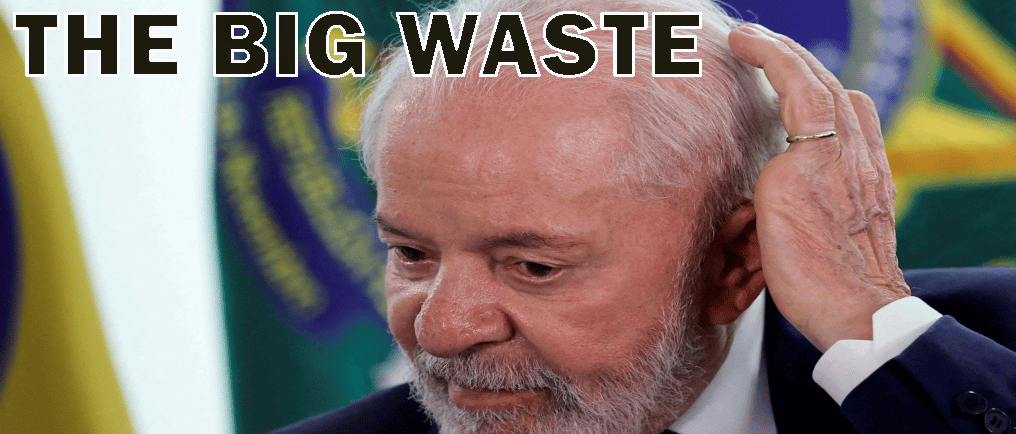Government's Revenue Hunger Drives Up Family Costs: The IOF Tax Hike
Government's Revenue Hunger Drives Up Family Costs: The IOF Tax Hike. The IOF is a federal tax levied on various credit, exchange, insurance, and securities operations. Its nature makes it an agile instrument for the government, which can alter its rates by decree, without needing Congressional approval.
NEWS
Unveiled Brazil
6/3/20253 min read


Government's Revenue Hunger Drives Up Family Costs: The IOF Tax Hike
In recent years, Brazil's economic policy has been marked by increasing tax collection pressure. The government's relentless pursuit of resources, often justified by the need to balance public accounts, has manifested on several fronts. One of the most directly felt by the population is the increase in taxes. Among these, the Tax on Financial Operations (IOF) has stood out as a quick adjustment tool, yet with a significant and often painful impact on family budgets.
The IOF: A Versatile Tax with Direct Impact
The IOF is a federal tax levied on various credit, exchange, insurance, and securities operations. Its nature makes it an agile instrument for the government, which can alter its rates by decree, without needing Congressional approval. This flexibility, however, is the same characteristic that transforms it into a barometer of the state's "revenue hunger." When the government needs money quickly, the IOF is often the first to be adjusted.
Despite being a tax on financial operations, its effect is widely disseminated. It impacts:
Loans and financing: Whether to buy a car, a house, or to cover daily expenses, credit becomes more expensive with the IOF increase.
Credit card purchases abroad: International travel or online purchases from foreign websites are impacted, increasing costs for the consumer.
Exchange operations: Converting Brazilian reais to dollars or euros for any purpose also becomes more expensive.
Insurance: The cost of acquiring insurance, whether for a car, life, or home, increases.
Investments: Although at lower rates, some financial investments are also taxed by the IOF.
The "Revenue Hunger": Why Does IOF Increase?
The governmental justification for increasing the IOF and other taxes almost always falls on the need for fiscal adjustment and meeting budgetary targets. Scenarios of growing deficits, increasing public debt, or the need to finance urgent social programs lead the Ministry of Finance to seek additional revenue sources.
However, the repetition of these increases raises questions about the effectiveness of other fiscal management measures, such as spending cuts and optimizing the public sector. For many economists and analysts, the recurring option for increasing the tax burden, especially in cascade-effect taxes like the IOF, demonstrates a difficulty in promoting structural reforms and a preference for short-term solutions.
The Cascade Effect: Increased Costs for Families
The impact of the IOF increase is felt directly and indirectly by Brazilian families.
More expensive debt: With a higher IOF, taking out loans becomes more costly, discouraging consumption and investment, and making it harder for families to renegotiate debts or access credit for their needs.
Reduced purchasing power: By making essential transactions more expensive, the tax erodes consumer purchasing capacity, especially in a high inflation environment.
Impact on foreign trade and tourism: The increased cost of exchange operations and international purchases affects both travelers and companies relying on imports, potentially leading to cost pass-through to the final consumer.
Sense of distrust: The constant tax increases can generate a climate of uncertainty and distrust in the economy, affecting consumer and investor confidence.
The Government's Dilemma and the Families' Perspective
For the government, an IOF increase is an easily implemented measure with immediate impact on revenue. It's a quick response to budgetary pressures. However, this revenue "hunger," when satisfied through taxes like the IOF, raises an alert about the economic future. It can stifle economic recovery, discourage investment and consumption, and worsen the financial situation of millions of families already facing challenges with inflation and unemployment.
From the families' perspective, each IOF increase is a painful reminder that fiscal adjustment is largely being made at their expense. This generates frustration and a legitimate questioning of state spending priorities and the efficiency of public management.
The discussion about the IOF increase and other taxes transcends the merely fiscal sphere. It touches on issues of social justice, economic strategy, and trust in governance. As long as the government continues to seek revenue as the primary solution for its budgetary challenges, Brazilian families will continue to bear the burden of ever-increasing costs, in a spiral that can compromise not only household budgets but also the country's sustainable growth.
